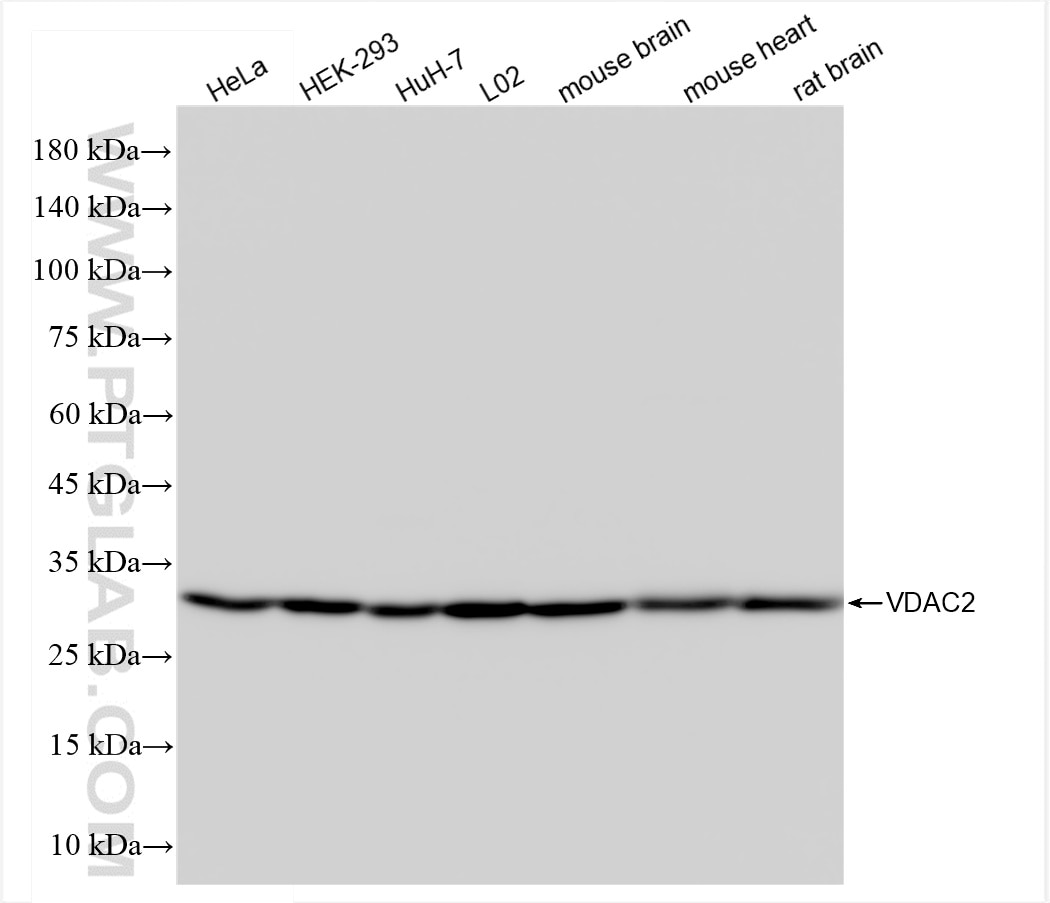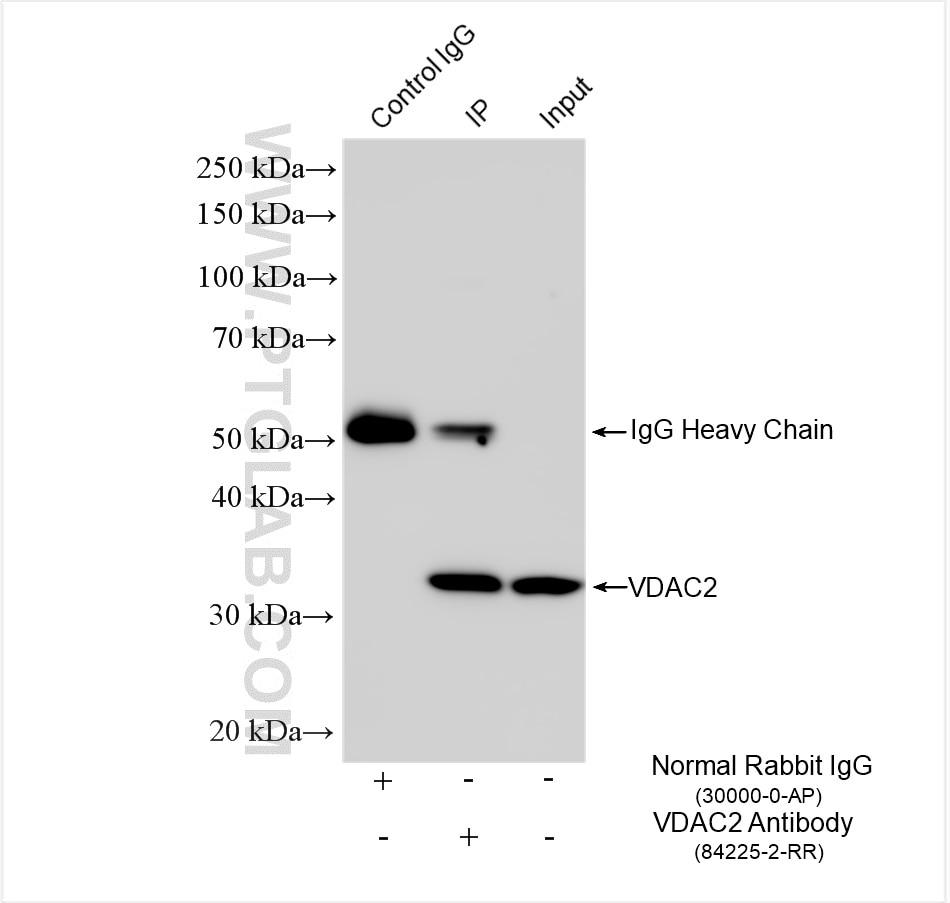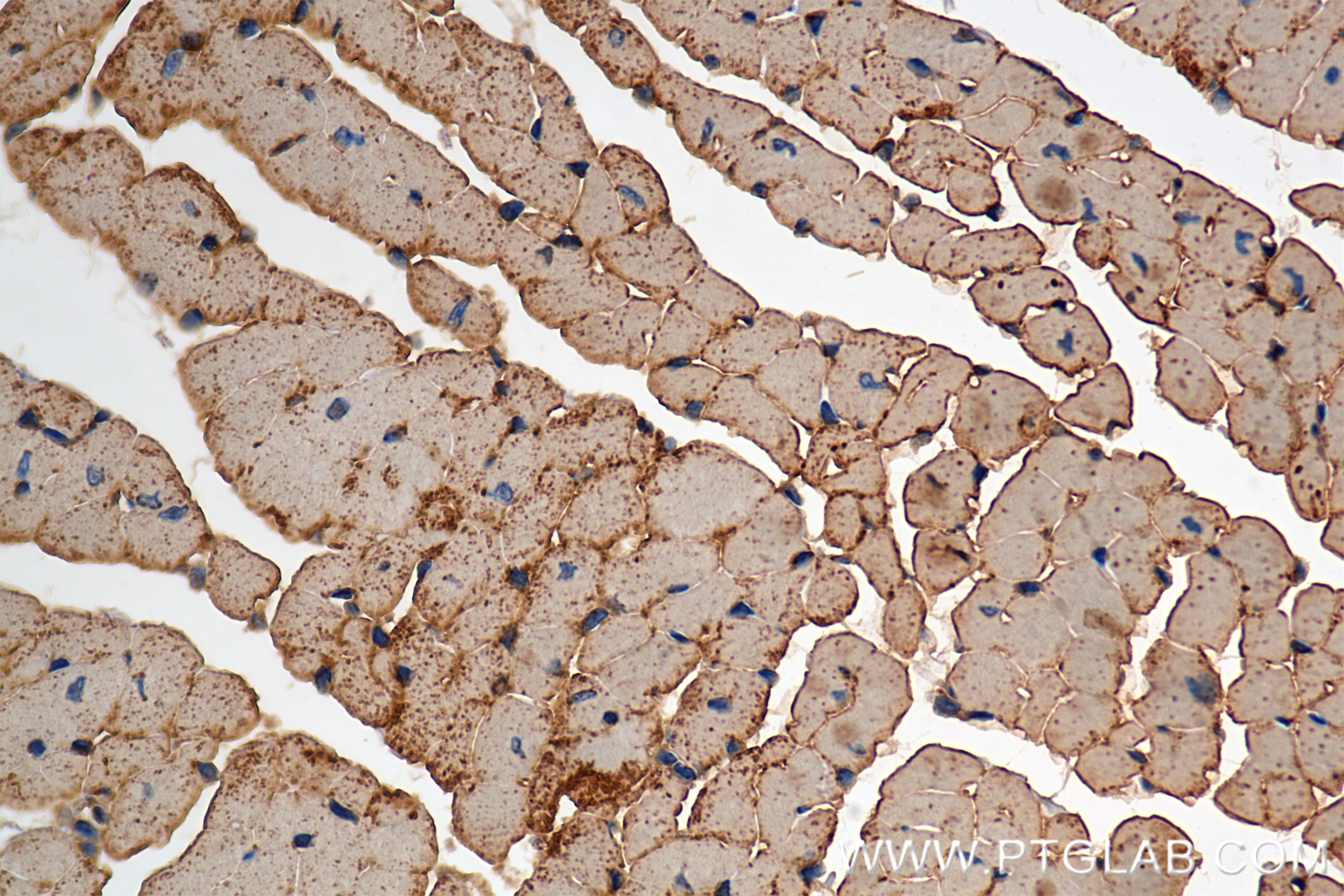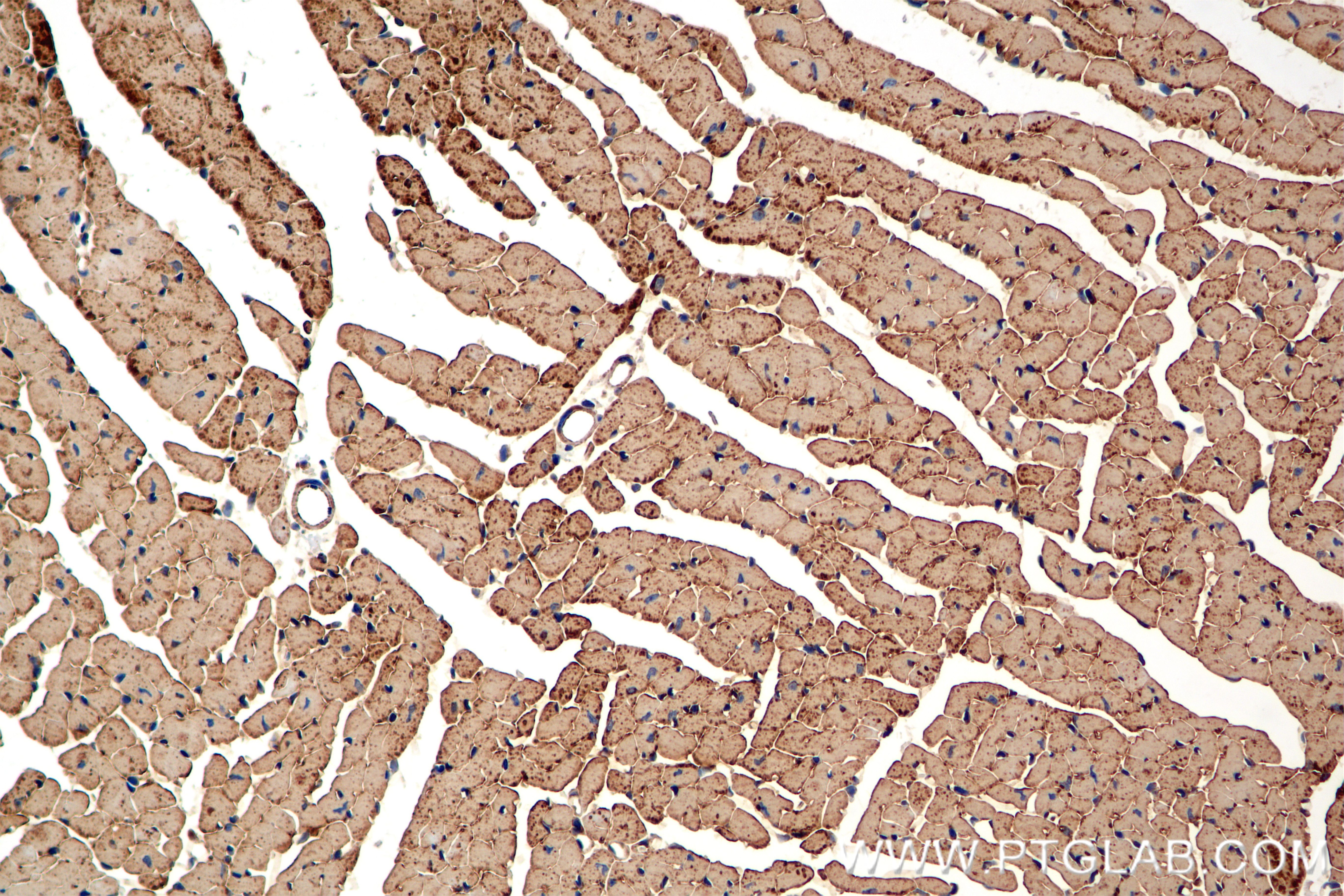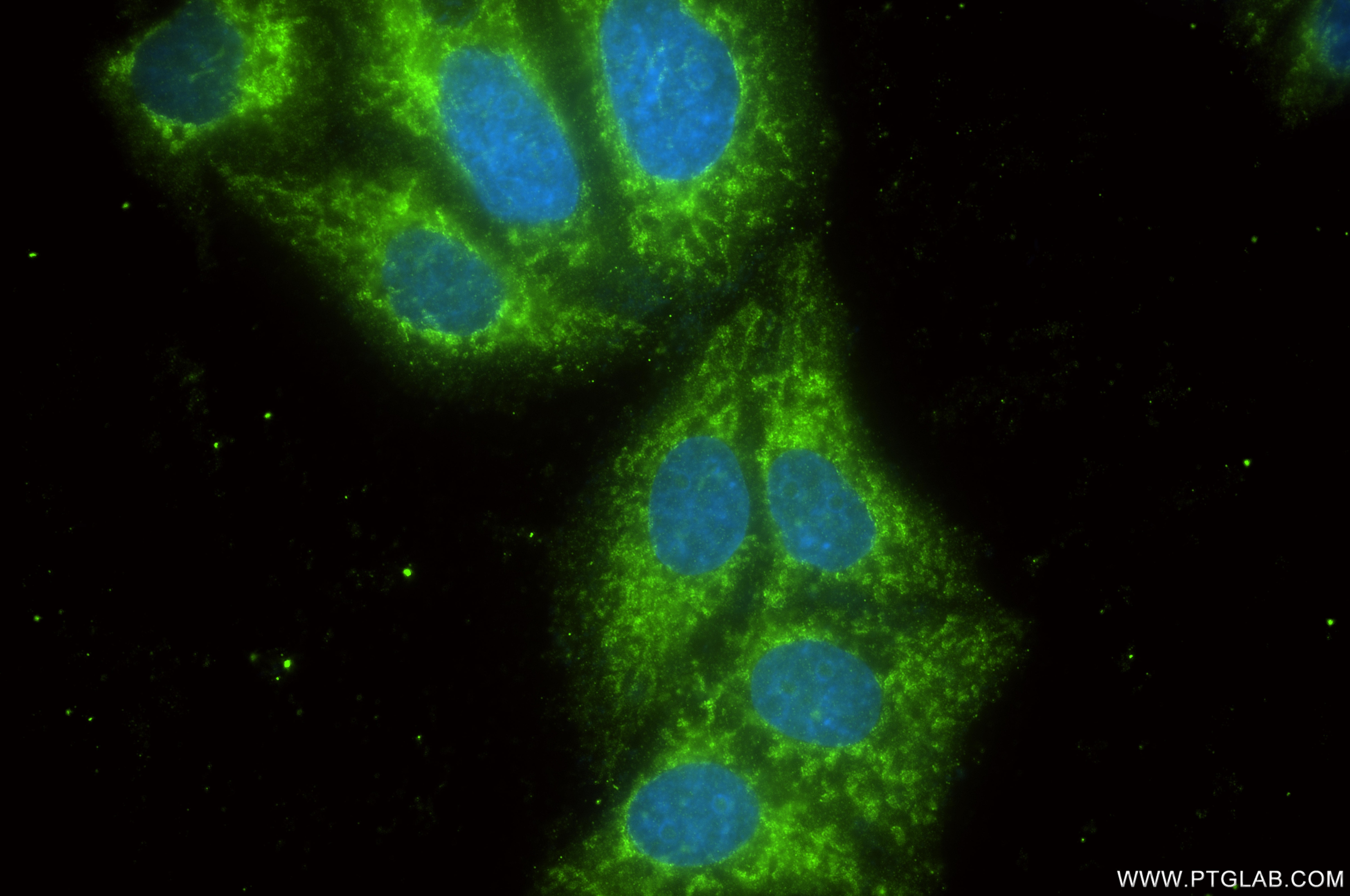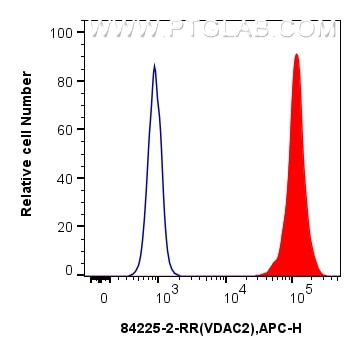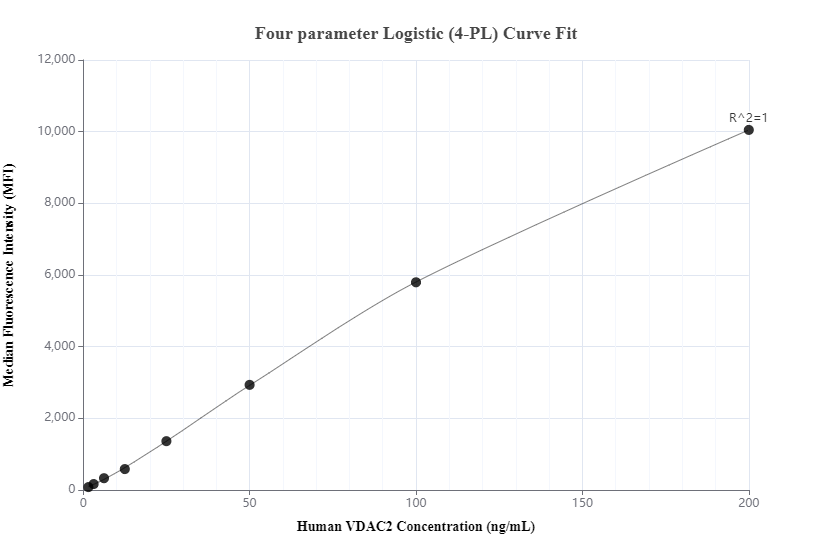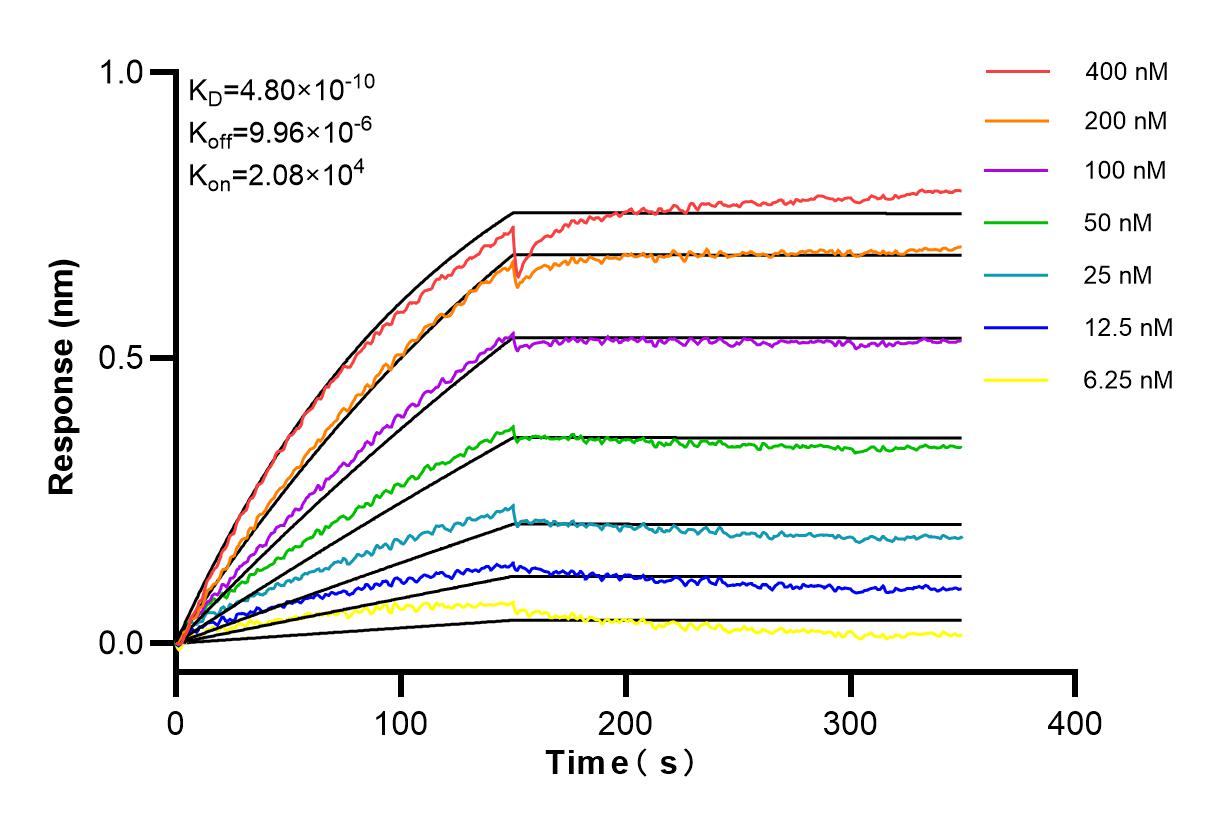Product Information
84225-2-PBS targets VDAC2 as part of a matched antibody pair:
MP01162-1: 84225-2-PBS capture and 84225-1-PBS detection (validated in Cytometric bead array)
Unconjugated rabbit recombinant monoclonal antibody in PBS only (BSA and azide free) storage buffer at a concentration of 1 mg/mL, ready for conjugation. Created using Proteintech’s proprietary in-house recombinant technology. Recombinant production enables unrivalled batch-to-batch consistency, easy scale-up, and future security of supply.
This conjugation ready format makes antibodies ideal for use in many applications including: ELISAs, multiplex assays requiring matched pairs, mass cytometry, and multiplex imaging applications.Antibody use should be optimized by the end user for each application and assay.
| Tested Reactivity | human, mouse, rat |
| Host / Isotype | Rabbit / IgG |
| Class | Recombinant |
| Type | Antibody |
| Immunogen |
CatNo: Ag2266 Product name: Recombinant human VDAC2 protein Source: e coli.-derived, PGEX-4T Tag: GST Domain: 1-294 aa of BC000165 Sequence: MATHGQTCARPMCIPPSYADLGKAARDIFNKGFGFGLVKLDVKTKSCSGVEFSTSGSSNTDTGKVTGTLETKYKWCEYGLTFTEKWNTDNTLGTEIAIEDQICQGLKLTFDTTFSPNTGKKSGKIKSSYKRECINLGCDVDFDFAGPAIHGSAVFGYEGWLAGYQMTFDSAKSKLTRNNFAVGYRTGDFQLHTNVNDGTEFGGSIYQKVCEDLDTSVNLAWTSGTNCTRFGIAAKYQLDPTASISAKVNNSSLIGVGYTQTLRPGVKLTLSALVDGKSINAGGHKVGLALELEA Predict reactive species |
| Full Name | voltage-dependent anion channel 2 |
| Calculated Molecular Weight | 294 aa, 32 kDa |
| Observed Molecular Weight | 31-33 kDa |
| GenBank Accession Number | BC000165 |
| Gene Symbol | VDAC2 |
| Gene ID (NCBI) | 7417 |
| Conjugate | Unconjugated |
| Form | Liquid |
| Purification Method | Protein A purification |
| UNIPROT ID | P45880 |
| Storage Buffer | PBS only, pH 7.3. |
| Storage Conditions | Store at -80°C. |
Background Information
VDACs (Voltage Dependent Anion selective Channels), also known as mitochondrial porins, are a family of pore-forming proteins discovered in the mitochondrial outer membrane. Mammals show a conserved genetic organization of the VDAC genes. It's reported that the amount of VDAC transcripts in liver is usually lower than in the other tissues. VDAC2 and especially VDAC3 are highly expressed in testis, while mouse VDAC1 is poorly expressed in this tissue. (PMID: 22020053)

